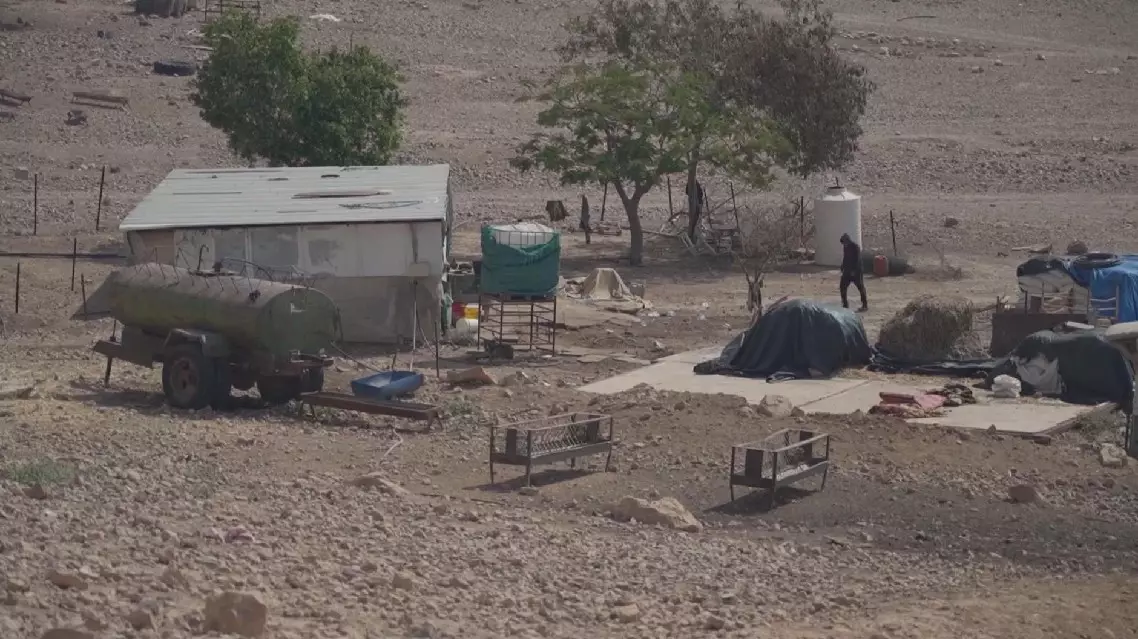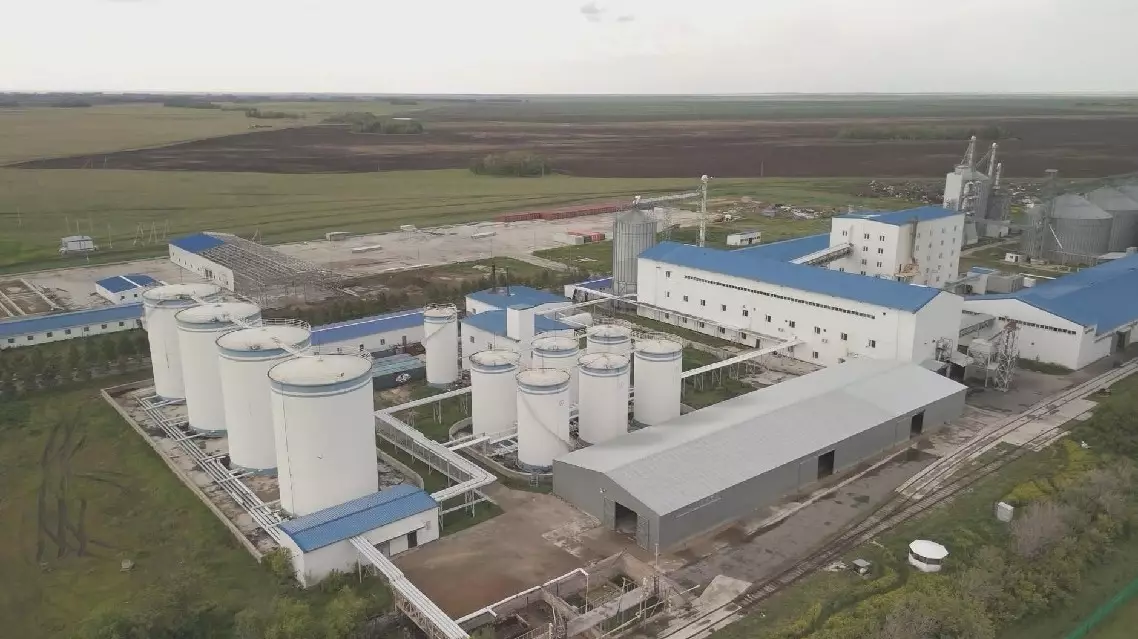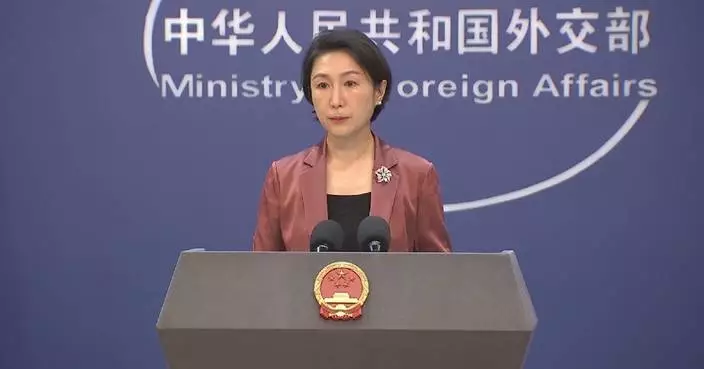Violent clashes between Palestinian Bedouin shepherds and Israeli settlers in the Israeli-occupied West Bank have increased sharply since the beginning of the Israeli-Palestinian conflict.
Israeli settlers, protected by live ammunition from Israeli security forces, have been raiding sheep from Palestinian shepherds.
Bedouin shepherds from the Ras Al-Ein community near Jericho have raised alarm over the rising frequency of attacks, and are concerned about the impact on their way of life.
"Why do they take our sheep? The police officers supported them. The officers were pointing to the settlers to take more sheep," said Mohammed Jabir Rashied, a Bedouin Shepherd.
Activists said Israeli settlers, who have recently built more illegal outposts in the area, blocked the shepherds' access to a nearby natural spring in an attempt to further isolate them. Trenches have also been dug to prevent the shepherds from moving their flocks to better pastures.
"Slowly, slowly they are closing the grazing lands. And after years of terror, now they almost can go out with a few roads that they're blocking the community, and the army came and said you aren't allowed to cross this road," said Guy Hirschfeld, a local activist.
Local shepherd Alia Mlehat bemoaned the severity of shepherd harassment, saying it has led to great losses from livestock theft.
"They even enter the mosque we pray at with the sheep they stole. We complain to the police but there's no answer," she said.
Local lawyers confirmed that there has been a recent spike in attacks, further squeezing the livelihoods of local herders.
"Targeting has enhanced to a degree that we have never seen before, so Jewish settlers are eyeing on their lands and in many cases are successful in blocking their access to farmlands and to grazing lands and these communities are in imminent danger of being completely destroyed," said Michael Sfard, an international human rights lawyer.
Shepherds said the increasing attacks are having a serious impact, as the herds are their main source of income.
"We have no other place to go. We have no homes, no land. We have nothing but our sheep and we live for them," said Mohammed Rashayda, a shepherd.
Activist Guy Hirschfeld said that in light of the harassment of the shepherds and the activists themselves, his counterparts are preparing to submit evidence and a letter to the International Criminal Court.
"After October 7th, the settlers turned into a pseudo security force, even settlers with criminal records, they’ve become the ones who enforce the law," said Ayman Ghrayib, a Palestinian activist.
Local herders also have the will to defend their lands and livelihoods against the rampant harassment and invasion.
"We are dying, we want someone to deliver and spread our voice, to support us, to defend us. We are strong, we won't abandon our land. We were born here, and we will die here as well," said Mlehat.

Israeli settlers' attacks on Palestinian shepherds soar in West Bank
An agricultural industrial park built by a Chinese enterprise in Kazakhstan's North Kazakhstan Region, also an iconic cooperation project under the Belt and Road Initiative (BRI), has brought huge socioeconomic development to the region.
The Aiju Agricultural Product Logistics Processing Park, invested by the Xi'an Aiju Grain and Oil Industrial Group, was officially put into operation in Kazakhstan at the end of 2016.
For staff member Manshuk Zarhan, the establishment of the industrial park has greatly improved her life. Her work starts with quality inspection of rapeseed and rapeseed oil every day.
"We use this probe to select samples for quality check. We need to select samples in several layers. We collect the rapeseed at about 40 centimeters deep. We need to collect 200 milliliters of sample, then we measure the oleic acid content and moisture content in the sample in the laboratory," said Zarhan, laboratory chief of the park.
Since 2016, the Aiju Group has promoted an order-based agricultural planting mode in Kazakhstan. Relying on the demands of the vast Chinese market, the company provides Kazakh farmers with customized planting orders at guaranteed purchase prices, which has helped the farmers increase their incomes and expand their exports.
The Chinese side has also launched a China-Europe freight train route for transporting locally produced goods and is continuously expanding its capacity.
Currently, the transportation time for wheat and other raw materials from Kazakhstan to Xi'an City, capital of northwest China's Shaanxi Province has been shortened from 25 days to 10 days, and the train's capacity has increased from 1,066 tons to 1,612 tons per trip.
"We originally invested in building three railway lines, and the fourth is under construction. After the completion of four railways, three freight trains can stop there, and plus the distribution center, we can store or provide 200 to 300 containers for special freight trains. This forms a system that can meet all needs of loading and shipping in railway transportation," said Jia Heyi, head of the Chinese enterprise.
According to Zarhan, eight years ago, upon learning about the construction of the China-Kazakhstan cooperation park, she promptly decided to move here with her family.
"We used to live nearby, and for the 10 years before we moved in, my husband was always on business trips. The kids were very young, and he couldn't be with them as they grew up. Then we moved here and finally we could work for the same company. I was the lab manager, and he was the raw material receiver," she said.
The project has created jobs for more than 1,500 people in the region and changed the lives of many local people.
"The welfare facilities here are very good. Housing is provided for employees. The new houses are built by the company. Dormitories, transportation and meals are also provided," said Marmite, a laboratory technician at the logistics and processing park.

China-Kazakhstan agricultural cooperation park boosts local socioeconomic development










